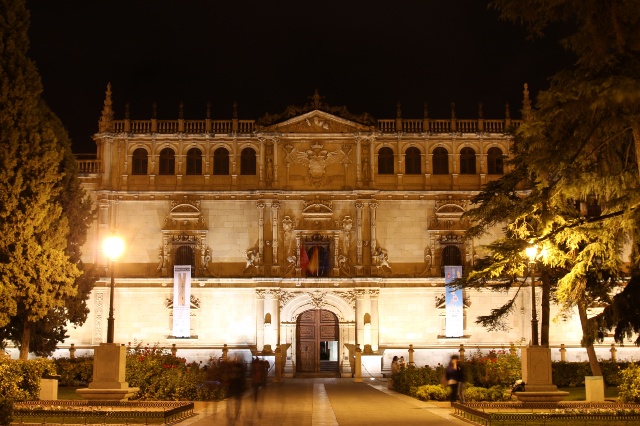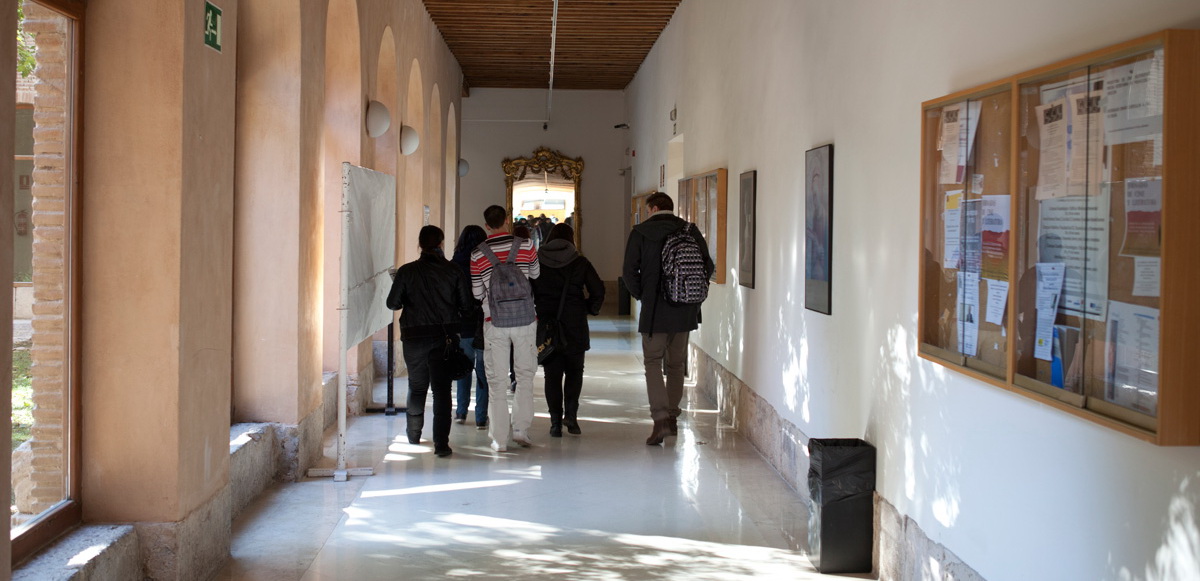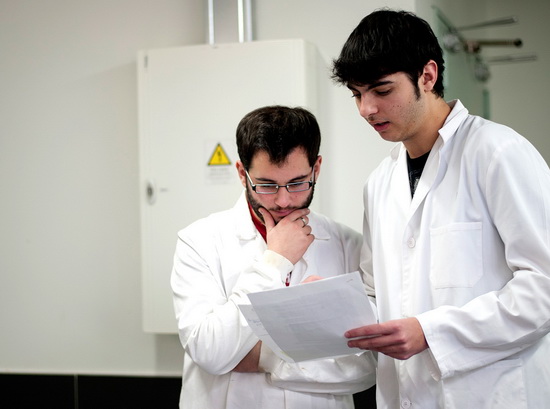
Objectives
The main objective of the Degree in Modern Languages and Translation is to produce professionals with a high capacity for understanding and expressing themselves in English, as well as sufficient knowledge of at least one other foreign language (German or French). They should also have acquired an overall knowledge of the linguistic, historical, cultural and literary conditions of English-speaking countries, and basic knowledge of the cultural environment of the German or French language.
The study programme facilitates student mobility through Erasmus exchanges and collaboration projects with foreign universities. Graduates should be able to improve their competences in English in general, and in text analysis and interpretation, in particular. They should be capable of integrating and applying their knowledge to text translation and interpretation, editing, and other related tasks, such as cultural mediation.
They should also use technological tools are carrying out their tasks, being innovative and updating their knowledge about the countries of influence in their profession, according to their specialisation. They should be able to use communication competences correctly and adequately, adapting to specific contexts and environments.
As language professionals, graduates of this course are qualified to interact as interpreters and mediators in various languages and contexts related to their specialisation, handling both oral content and written texts. They could study specialised translation in one field of knowledge in depth: law, science and technology, literature, humanities, etc. Their multi-faceted training enables them to perform other roles in the multicultural, linguistic and literary sectors.
Competences
They should also use technological tools are carrying out their tasks, being innovative and updating their knowledge about the countries of influence in their profession, according to their specialisation. They should be able to use communication competences correctly and adequately, adapting to specific contexts and environments.
As language professionals, graduates of this course are qualified to interact as interpreters and mediators in various languages and contexts related to their specialisation, handling both oral content and written texts. They could study specialised translation in one field of knowledge in depth: law, science and technology, literature, humanities, etc. Their multi-faceted training enables them to perform other roles in the multicultural, linguistic and literary sectors.
Structure and credits
| SUBJECT TYPE | ECTS |
|---|---|
| Basic training (B) | 60,0 |
| Obligatory (Ob) | 106,0 |
| Optional (Opt) | 44,0 |
| External practicums (Ob) | 16,0 |
| Bachelor's Degree Final Project (Ob) | 14,0 |
| TOTAL CREDITS | 240,0 |
Student profile
The appropriate profile for a future translator is a person with an intermediate or advanced level of English, command of the Spanish language, and a good level of a second foreign language. An interest in intercultural communication and reading, a gift for language learning, the capacity for reasoning and abstraction, creativity and imagination, are valuable qualities.
Professional opportunities and officially regulated professions
Graduates of these studies will be able to work as general or specialist translators, linguistic and intercultural mediators, proofreaders, reviewers and copy editors in publishing; lexicographers and terminology researcher; linguistic project managers; teachers; linguistic planners and advisors in companies and the media; international relations managers; cultural and tourism managers in the civil service and private companies requiring a good knowledge of other languages and cultures; managers and advisors in documentation, archives and libraries; human resources advisors and managers.
First academic year taught
Curso 2009/10 FIRST YEAR
Curso 2010/11 FIRST AND SECOND YEAR
Curso 2011/12 FIRST, SECOND AND THIRD YEAR
Curso 2012/13 FIRST, SECOND, THIRD AND FOURTH YEAR
Academic Staff
Information leaflet
More information
- Teaching centre: Faculty of Arts and Humanities
- Official State Bulletin publication date: 01/09/2011
- Number of places available: 50
- Type of teaching: CLASSROOM
- Language of instruction: SPANISH, GERMAN, FRENCH, ENGLISH
- First Academic year taught: 2011-12
Our curriculum includes a practice of Wordfast translation tools, courtesy of Wordfast LLC and Yves Champollion
Subjects, timetables and examinations
Study plan /of adaptation to the degree / Recognition of credits
External practicums
Final Project
International Programmes and Exchanges
Movilidad nacional
Registration
Antes de realizar la matrícula es imprescindible leer la información que figura en el apartado de planificación de la enseñanza y toda la información detallada siguiente:
Regístrate para obtener usuario y contraseña
Protección de datos personales
ACCESO AL PROGRAMA DE AUTOMATRÍCULA





